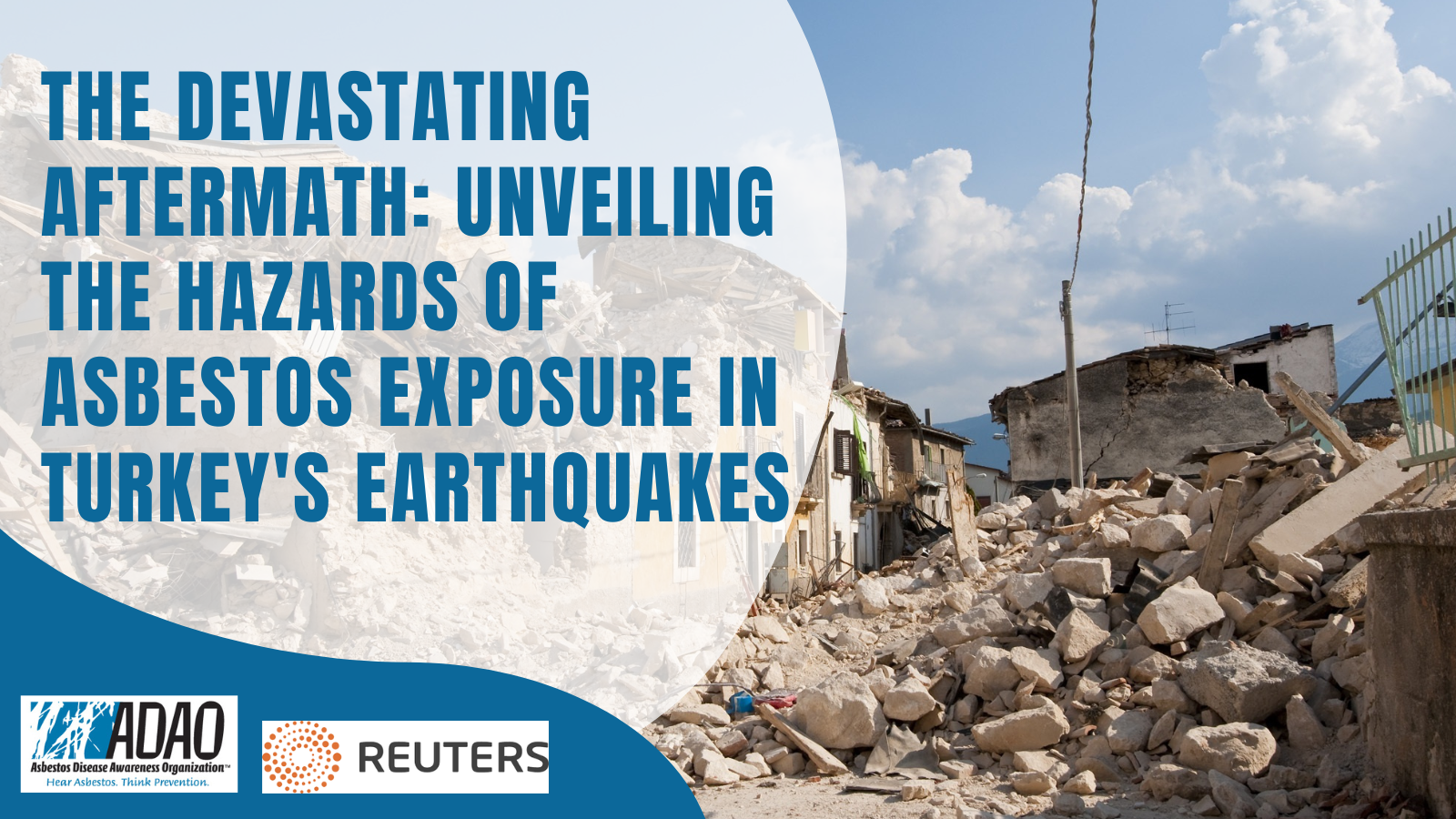Posted on May 16, 2023
Reuters’ recent article “The toxic dust from Turkey’s earthquakes” offers a compelling exploration of the catastrophic earthquakes that struck Turkey in February 2023. These devastating natural disasters resulted in the release of hazardous substances, including asbestos, silica, mercury, and lead. This in-depth report sheds light on the severe consequences of the earthquakes in Turkey, specifically focusing on the widespread presence of toxic dust and its potential impact on human health and the environment.

The aftermath of the earthquakes in Turkey left a trail of destruction, raising alarming concerns about a “secondary disaster” of toxic contamination that will likely surpass the quakes’ impact themselves. Hatay province, a critical agrarian hub contributing significantly to Turkey’s agricultural GDP, now faces the daunting task of managing the hazardous debris resulting from the earthquakes. Further, the asbestos released into the air from this natural disaster will cause damage for years to come according to Mehmet Ensari.
“We will lose a generation in that region.” – Mehmet Şeyhmus Ensari, civil engineer and Chairman of the Association of Asbestos Dismantling Experts.
Local communities in Turkey have taken a stand, protesting against the reckless dumping of construction debris near residential areas, hospitals, places of worship, olive groves, and coastal wetlands. However, the resolution of this matter remains pending as the court deliberates on the issue.
The scale of devastation is staggering, with homes, hospitals, mosques, and monuments are reduced to rubble across 11 provinces, resulting in an estimated cost exceeding $103 billion for Ankara. To put this into perspective, the United Nations Development Program highlights that the debris alone could fill 38 colossal heaps, each comparable in size to the Great Pyramid in Giza, Egypt.
What sets this article apart is its’ meticulous analysis and the impactful visuals provided by Reuters. The graphics bring the facts to life, visually representing the profound aftermath of natural disasters. Furthermore, the article draws attention to the concerning fact that the United States continues to import and utilize substantial amounts of asbestos each year, leading to over 40,000 American deaths annually due to asbestos exposure. Shockingly, many citizens remain unaware of asbestos’s continued legality and lethal nature.
This article serves as a poignant reminder of the purpose of relentless advocacy efforts of organizations like ADAO (Asbestos Disease Awareness Organization). It raises critical questions about why asbestos imports are permitted when it’s clear that there is no way to manage the associated risks effectively. The article emphasizes the broad impact of natural disasters as they expose first responders, citizens, aid workers, and numerous others to these hazardous toxins. No one is truly safe.
To address this pressing issue, an urgent global ban on asbestos is imperative. The United States is urged to join the ranks of nearly 70 countries that have taken decisive steps to outlaw this recognized carcinogen. The Alan Reinstein Ban Asbestos Now (ARBAN) Act of 2023, an unprecedented bill recently presented to Congress, plays a crucial role in this mission. The act includes comprehensive measures, such as prohibiting all six asbestos fibers and Libby Amphibole, winchite, and richerite. These measures aim to facilitate the transition to non-asbestos alternatives in industries that rely on this hazardous material.
Startling satellite imagery further unveils the extent of the challenge, with 19 temporary rubble storage areas in Hatay alone covering approximately 1.3 million square meters. Alarmingly, some of these sites are perilously close to residential buildings and olive groves, with rubble piles visibly exposed and spilling over into nearby fields, leaving hundreds of thousands at risk.
Reuters brings the pressing issue of toxic contamination to the forefront with this article, underscoring the vital need to proactively address such challenges by limiting, better yet, ending the commercial and industrial use of toxic substances. It particularly emphasizes the importance of a comprehensive asbestos ban in the United States. The dire situation in Turkey is a vivid reminder of the urgent global imperative to ban asbestos and prioritize sound waste management practices to safeguard human health and the environment.
Linda Reinstein
Social Networks
